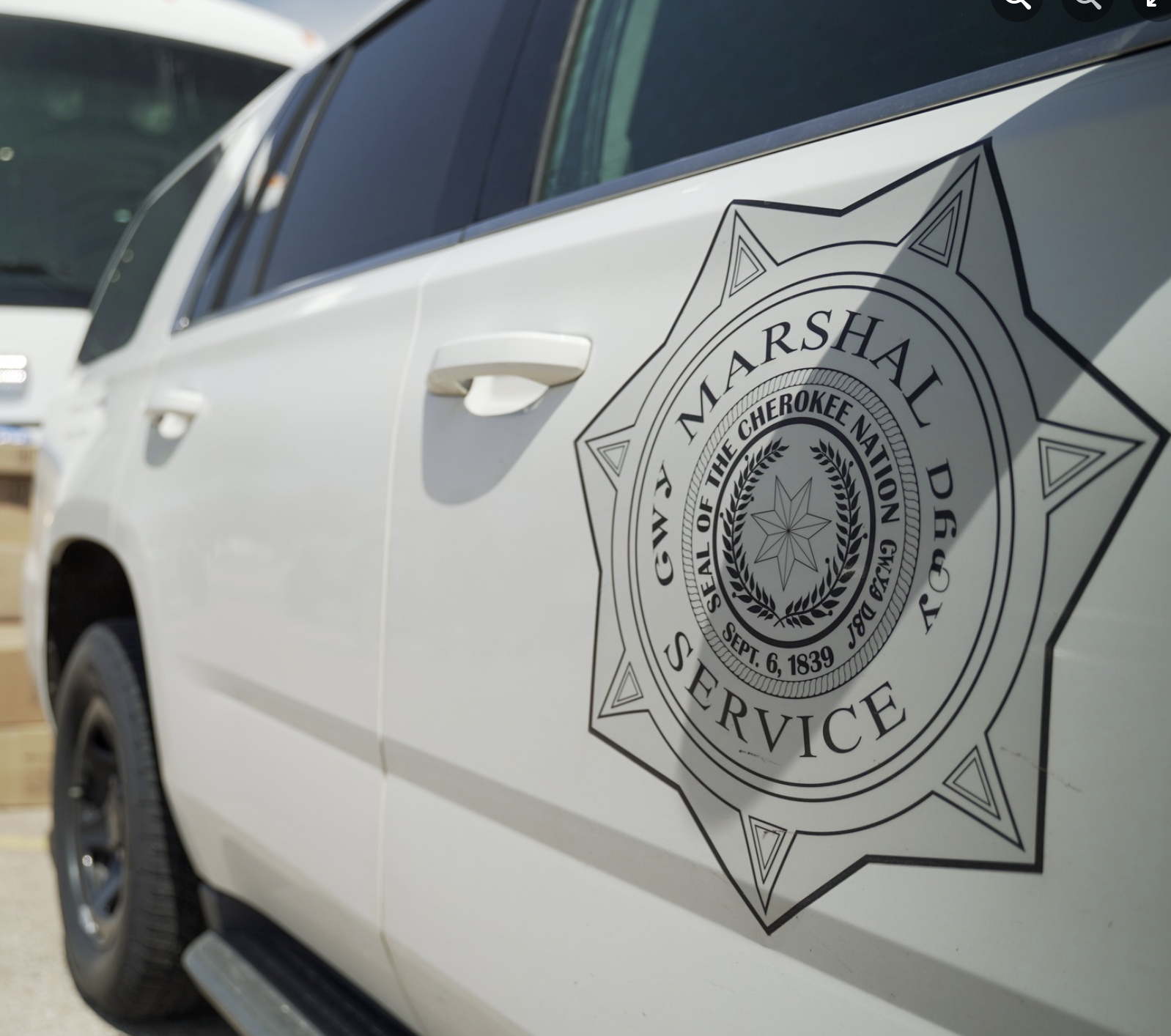
- Details
- By Chuck Hoskin Jr
Guest Opinon. In the early ‘90s, long before anyone ever heard of McGirt, Cherokee Nation signed its first cross-deputization agreement. That powerful act of tribal sovereignty has served us, and all of our friends and neighbors, well ever since.
Cross-deputization is often misunderstood, particularly as we grapple with the complexities of the post-McGirt era. The landmark U.S. Supreme Court case, which led to the reaffirmation of the Cherokee Nation Reservation, makes understanding cross-deputization more important than ever.
Cross-deputization helps solve the great challenge of multiple law enforcement agencies exercising their respective authority over the same geographic area. Without cross-deputization, our shared goal of public safety takes a back seat to potential confusion or competition over law enforcement activities, including critical work where time can mean the difference between life and death.
It is important to first recognize what cross-deputization does not do. Cross-deputization does not give up a bit of sovereignty or jurisdictional authority by either party involved. Cross-deputization does not determine which government — state or tribal — has jurisdiction over a particular case. Cross-deputization does not take away rights from anyone involved in a law enforcement action, be it the victim, the alleged offender or the law enforcement agency or personnel involved.

What cross-deputization does do is empower law enforcement — local, state and tribal — with tools that are only possible through government-to-government cooperation, and which mean better, more efficient and more effective law enforcement and public safety protections for all of us.
Cross-deputization achieves this by a fairly simple agreement: parties to a cross-deputization agreement agree that each party’s officers can effectively “wear the badge” of the other for the purposes of law enforcement actions. Without sacrificing sovereignty and jurisdiction, two law enforcement agencies can ensure that they have each other's back when it comes to matters like making arrests or writing a traffic ticket.
Let’s take a hypothetical scenario involving my hometown of Vinita, a longstanding party to a Cherokee Nation cross-deputization agreement. Suppose a Vinita police officer pursues a suspect accused of assault and battery and who happens to be a Cherokee citizen. Under the McGirt case, the suspect would face tribal and potentially federal charges, but not state charges. Does the Vinita police officer even have authority to arrest the suspect?
Without cross-deputization, the answer is no. The local police officer would be powerless to do what we expect all police in our communities to do: arrest dangerous suspects and let justice be served in the courts.
On slightly different facts, it is easy to see the Cherokee Nation Marshal Service in the same predicament. A non-Indian suspect, outside the jurisdiction of Cherokee Nation, would be legally beyond the reach of one of our Deputy Marshals.
But with cross-deputization, both the local police officer and the Cherokee Deputy Marshal can do what they are trained to do: protect and serve all of us. Either officer, with the authority and certainty of the cross-deputization agreement, can arrest the suspect. In many cases, this means both officers are literally working together to get that done.
After the arrest is made, the courts resolve the question that cross-deputization, by design, does not address: which government prosecutes the case? Saving the important question of jurisdiction for after the suspect is arrested and the threat neutralized is the beauty of cross-deputization agreements.
At Cherokee Nation, we have cross-deputization agreements with every law enforcement agency within our 7,000-square-mile reservation. This includes every local police department, sheriff’s office, the Grand River Dam Authority and the Oklahoma Highway Patrol. This means for every person living, working, or even just traveling through our reservation, law enforcement agencies have the basic tools in place to work seamlessly in the public interest.
Our cross-deputization agreements also create an atmosphere of cooperation and certainty that is larger than the agreements themselves. The agreements, and the atmosphere of camaraderie, trust and respect they create, allow sharing of best practices and resources, such as specialized equipment and specially trained teams. Just last year, Cherokee Nation provided millions of dollars in equipment grants to cross-deputized agencies.
As we move forward with seizing the new opportunities for asserting our sovereignty under the McGirt case, let’s remember that cross-deputization, an indispensable tool of tribal sovereignty, has been here all along, serving us well since the early 1990s.
Chuck Hoskin, Jr. is the principal chief of the Cherokee Nation.
More Stories Like This
Disrupting Poverty Through OpportunityMarmot Day (Ground Hog Day) and the (Lack of) Law
Sanctuary Cities Under Siege: When Federal Power Becomes a Weapon Against the People
Denmark's Genocidal Practices in Greenland
Cherokee Nation Stands Against Predatory Lending
Help us defend tribal sovereignty.
At Native News Online, our mission is rooted in telling the stories that strengthen sovereignty and uplift Indigenous voices — not just at year’s end, but every single day.
Because of your generosity last year, we were able to keep our reporters on the ground in tribal communities, at national gatherings and in the halls of Congress — covering the issues that matter most to Indian Country: sovereignty, culture, education, health and economic opportunity.
That support sustained us through a tough year in 2025. Now, as we look to the year ahead, we need your help right now to ensure warrior journalism remains strong — reporting that defends tribal sovereignty, amplifies Native truth, and holds power accountable.
 The stakes couldn't be higher. Your support keeps Native voices heard, Native stories told and Native sovereignty defended.
The stakes couldn't be higher. Your support keeps Native voices heard, Native stories told and Native sovereignty defended.
Stand with Warrior Journalism today.
Levi Rickert (Potawatomi), Editor & Publisher

